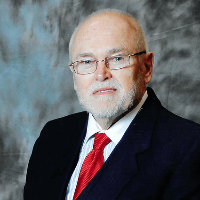Port Isabel Reorganization Lawyer, Texas
Not enough matches for Port Isabel Reorganization lawyer.
Below are all Port Isabel Bankruptcy & Debt lawyers.
Christopher Lee Phillippe
✓ VERIFIED *Status is reviewed annually. For latest information visit hereDivorce & Family Law, Bankruptcy & Debt, Estate, Criminal, Accident & Injury
Mr. Phillippe has been licensed to practice law in the state of Texas since 1983. He helps his clients with Family Law, Accident & Injury, Criminal, B... (more)
Thomas John Huebner
Commercial Real Estate, Family Law, Business & Trade, Credit & Debt
William L. Rentfro
Elder Law, Bankruptcy, Business & Trade, Wills
Miguel Daniel Trevino
Consumer Bankruptcy, Insurance, Consumer Rights, Family Law
Status: In Good Standing *Status is reviewed annually. For latest information visit here Licensed: 11 Years
Francisco Javier Orozco
Credit & Debt, Administrative Law, Criminal, Litigation, Insurance
Status: In Good Standing *Status is reviewed annually. For latest information visit here Licensed: 12 Years
Richard J. W. Nunez
Personal Injury, Credit & Debt, Family Law, Wills, Litigation
Status: In Good Standing *Status is reviewed annually. For latest information visit here Licensed: 42 Years
William Joseph Irwin
Consumer Bankruptcy, Business, Business & Trade, Wills, Government
Status: In Good Standing *Status is reviewed annually. For latest information visit here Licensed: 14 Years
David Forrest Irwin
Bankruptcy, Administrative Law, Employee Rights, Litigation, Construction
Status: In Good Standing *Status is reviewed annually. For latest information visit here Licensed: 16 Years
Renee Marie Sanchez
Bankruptcy, Business, Criminal, Estate Planning, Wills
Status: In Good Standing *Status is reviewed annually. For latest information visit here Licensed: 11 Years
Phil Alan Bellamy
DUI-DWI, Estate Planning, Bankruptcy, Construction, Dispute Resolution
Status: In Good Standing *Status is reviewed annually. For latest information visit here Licensed: 32 Years

